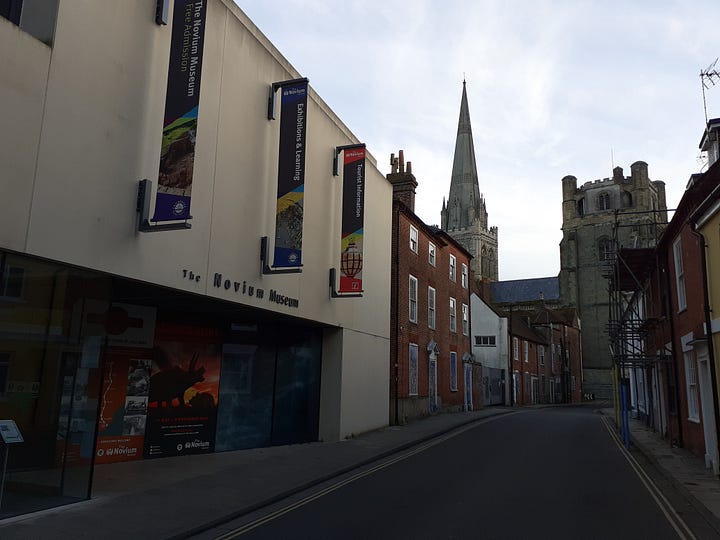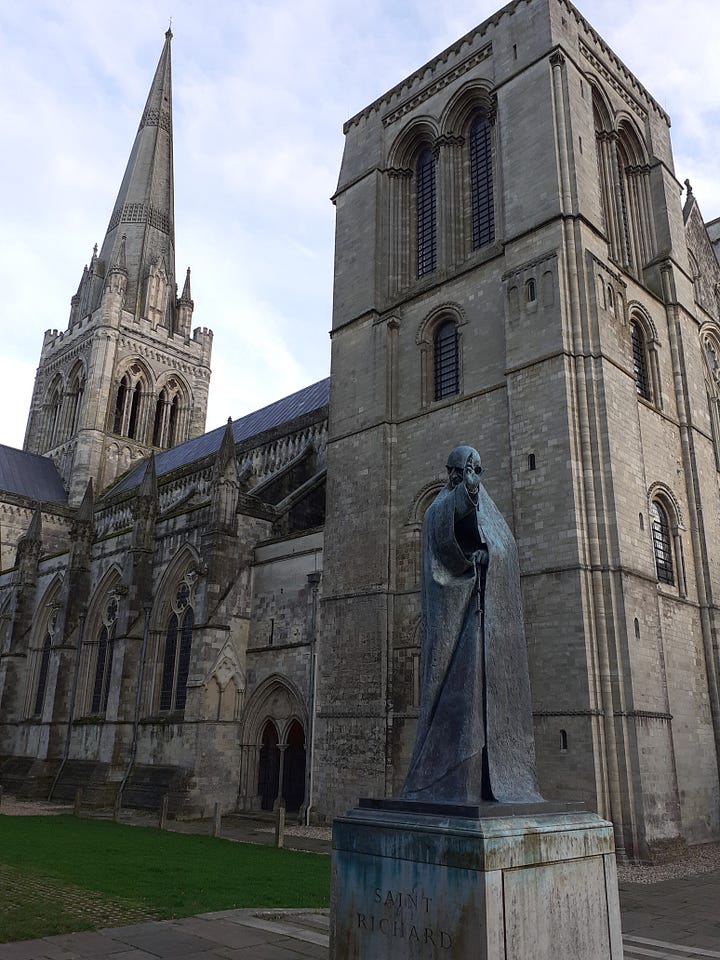What will survive of us is love
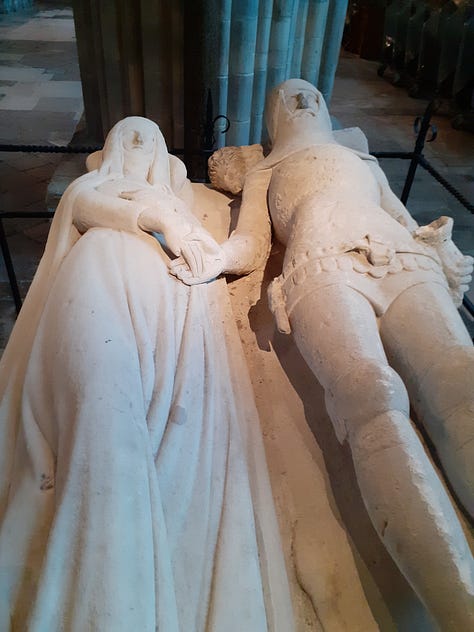
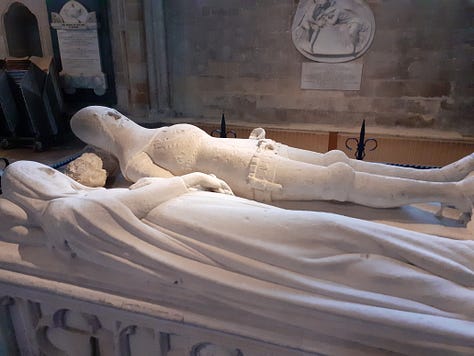
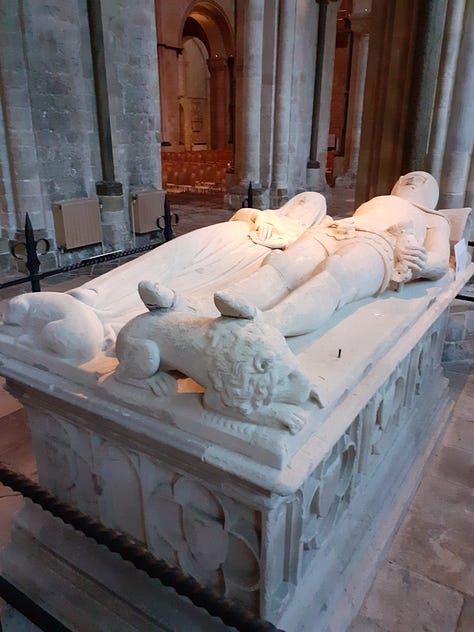
I was in Chichester this week, giving a talk about the work of Mary’s Meals. While I was there, I popped into the cathedral and was surprised to find an Arundel tomb. The Arundel Tomb of Philip Larkin’s famous poem. I’d never seen it before, so it was a real pleasure to see the hand-holding couple, their lovely domestic moment frozen in stone:
Such plainness of the pre-baroque
Hardly involves the eye, until
It meets his left-hand gauntlet, still
Clasped empty in the other; and
One sees, with a sharp tender shock,
His hand withdrawn, holding her hand.
I was also amused by Larkin’s poetic licence. He writes about “that faint hint of the absurd— / The little dogs under their feet.” I don’t know about you, but that animal under the man’s feet doesn’t look like a dog to me!
I have very mixed feelings about Larkin. He was an incredibly skilful poet, controlling rhyme and rhythm beautifully to achieve a wonderfully understated effect in poems like ‘The Whitsun Weddings’:
That Whitsun, I was late getting away:
Not till about
One-twenty on the sunlit Saturday
Did my three-quarters-empty train pull out,
All windows down, all cushions hot, all sense
Of being in a hurry gone. We ran
Behind the backs of houses, crossed a street
Of blinding windscreens, smelt the fish-dock; thence
The river’s level drifting breadth began,
Where sky and Lincolnshire and water meet.
Much the same is true in ‘An Arundel Tomb,’ though he couldn’t quite shake off his rather curmudgeonly agnosticism. Here’s how the poem ends:
Time has transfigured them into
Untruth. The stone fidelity
They hardly meant has come to be
Their final blazon, and to prove
Our almost-instinct almost true:
What will survive of us is love.
Much of that seems to me to be simply wrong, but the poem as a whole is redeemed by that wonderful final line: “What will survive of us is love.”
Earlier that afternoon, I had been speaking about faith, hope and love to the ladies group at St Paul’s Church in the city: the faith of Magnus MacFarlane-Barrow that led him to start Mary’s Meals; the hope that pervades the charity today (school + food = hope); and “the little acts of love” that transform people’s lives. Maybe that was why this Arundel Tomb transposed to Chichester Cathedral made such an impact on me.
